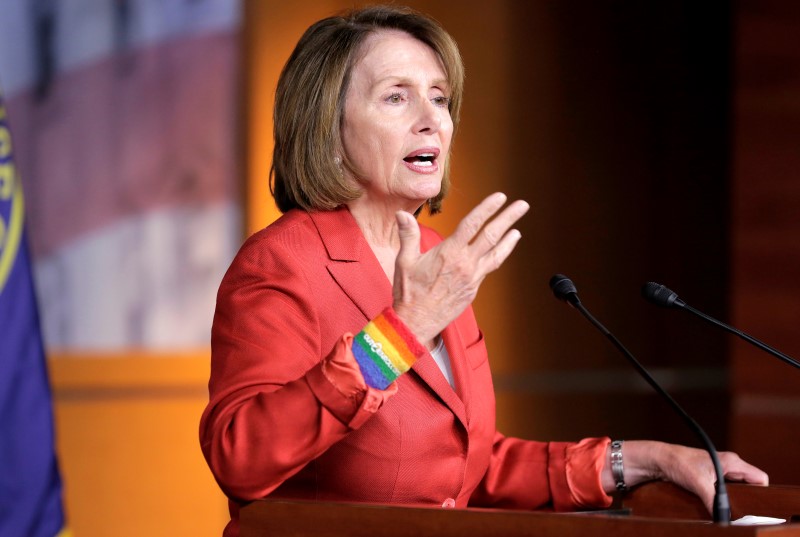This post was originally published on this site
https://i-invdn-com.akamaized.net/news/LYNXMPECBL0ZG_M.jpg
Investing.com – Wall Street struggled on Friday, as better-than-expected job gains were cast aside by a lack of progress among lawmakers on the next round of coronavirus stimulus and souring U.S.-China trade relations.
The Dow Jones Industrial Average fell 0.26 %, or 69 points. The S&P 500 slipped 0.30%, while the Nasdaq Composite fell 1.21%.
The US economy added a better-than-forecast 1.76 million jobs in July, reinforcing investor expectations that the labor market remains steady despite recent data including a weaker jobless claims report earlier this week suggesting otherwise.
But a lack of progress among lawmakers on another pandemic stimulus relief, which is key to sustaining the U.S. economic recovery, prompted investors to rein in their bullish bets.
House Speaker Nancy Pelosi reportedly said an offer to reduce the $3.4 trillion package by $1 trillion was rejected by the White House, marking a blow to hopes of lawmakers meeting a self-imposed Friday deadline to resolve key sticking points.
As well as the slow pace of negotiations on Capitol Hill, rising U.S.- China trade tensions – in the wake of President Trump’s decision to target Chinese tech – weighed on investor sentiment.
President Donald Trump on Thursday issued executive orders against Chinese tech firms TikTok and WeChat, which he claimed would curb the “threat” they pose to U.S. national security.
The sluggish day on Wall Street was exacerbated by weakness in tech stocks, which have led much of the rally since the recent lows seen in March.
Facebook (NASDAQ:FB) sidestepped the broader market weakness, while the rest of the of the so-called Fab 5 floundered, with Alphabet (NASDAQ:GOOGL), Amazon (NASDAQ:AMZN), Apple (NASDAQ:AAPL), and Microsoft (NASDAQ:MSFT) nursing losses.
Energy also played its role in pressuring the broader market, falling 1% as oil prices look set to the end the day in the red as U.S.-China tensions added a layer of uncertainty to the crude demand outlook.
On the earnings front, Uber Technologies (NYSE:UBER) slumped more than 5% following a wider-than-expected loss in the second quarter as its core ride sharing business saw bookings plummet 73% amid pandemic-led weakness.
T-Mobile US (NASDAQ:TMUS) popped 6.5% to hit new 52-week highs after the wireless provider delivered better-than-expected quarterly earnings and said it had usurped AT&T (NYSE:T) as the second biggest mobile carrier in the U.S.

